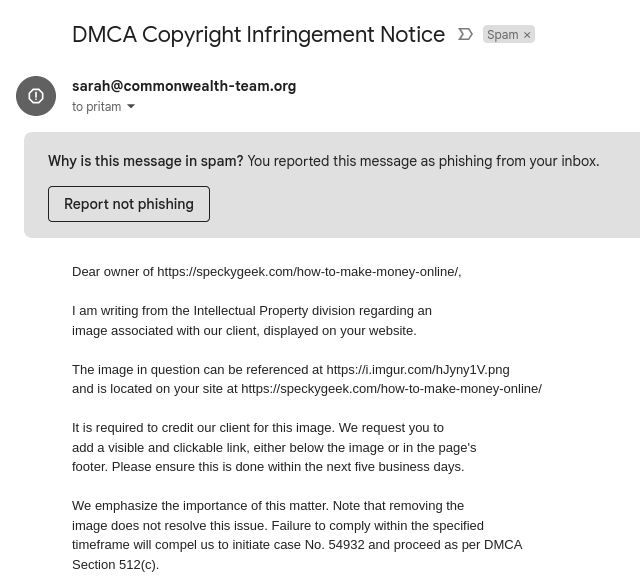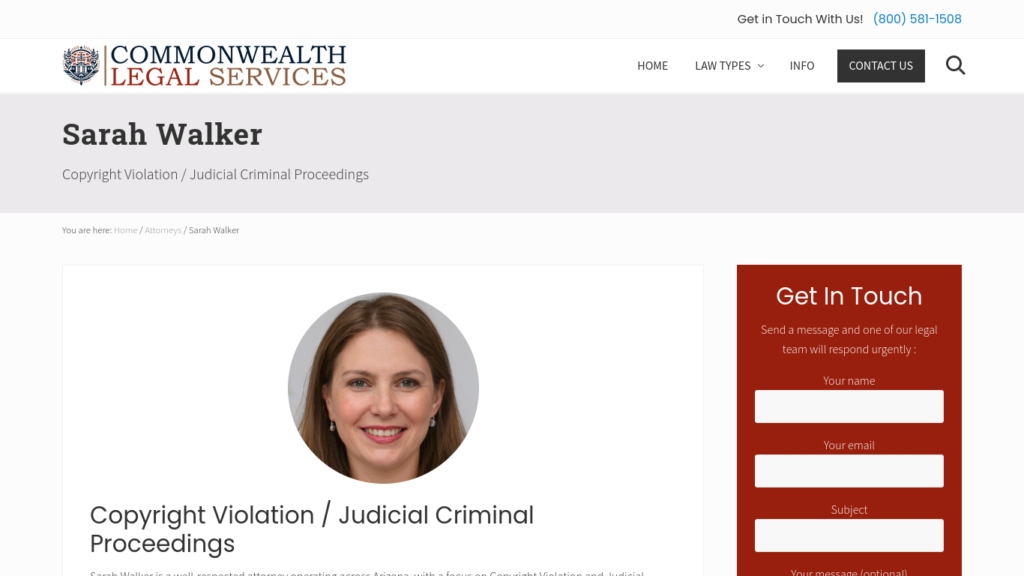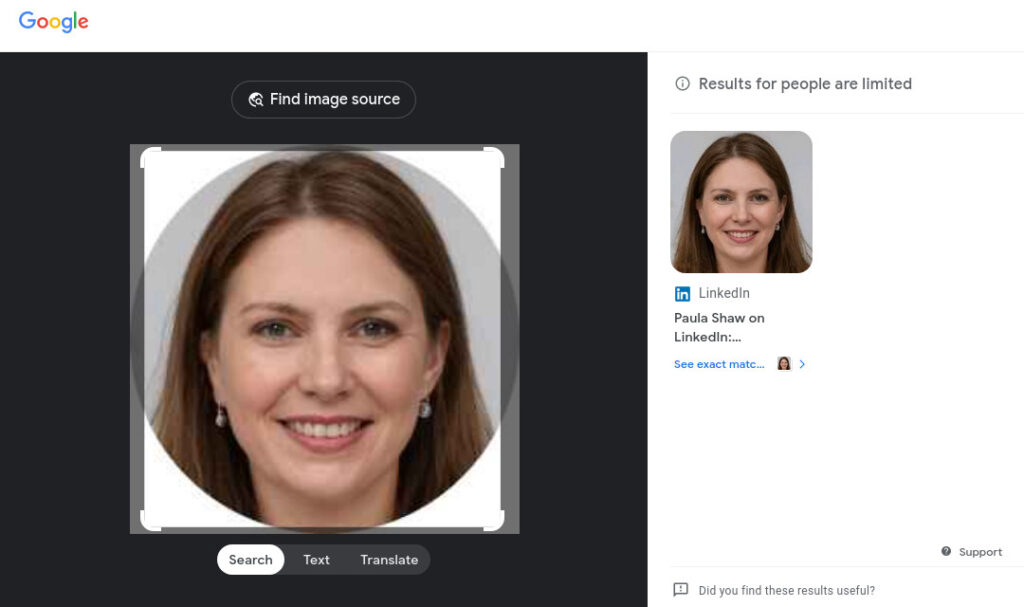Have you received an email with the scary title “DMCA Copyright Infringement Notice“? As a law-abiding blogger or a business website owner, you don’t want to violate copyright laws. Even if you never use any stolen image, such email notices can still land in your inbox. Beware, it is most likely a scam.
Phishing emails have been on the rise, with scammers using sophisticated tactics to deceive unsuspecting individuals. In this blog post, we shed light on a particularly insidious phishing scheme that uses the subject “DMCA Copyright Infringement Notice” to manipulate website owners.
Anatomy of the Copyright Infringement Scam by “Commonwealth Legal Services”
Here’s a phishing email that I receive today from an “attorney” at “Commonwealth Legal Services”, Phoenix AZ. I had received similar emails earlier too.

Subject: DMCA Copyright Infringement Notice
Phishing emails are designed to exploit fear and urgency, and scammers often use subject lines that grab the recipient’s attention. In this case, the subject line implies legal consequences by invoking the DMCA (Digital Millennium Copyright Act) and alleging copyright infringement.
Sender: Fake Attorney and Law Firm
The scammers go to great lengths to create an illusion of legitimacy by posing as a trademark attorney named Sarah Walker from Commonwealth Legal Services. They provide an address in Phoenix, Arizona (3909 N 16th St, 4th Floor, Phoenix AZ 85016) to give the impression of a physical location. However, upon closer inspection, this address may turn out to be fabricated. If the address is real, there won’t be a law firm as claimed.
Stage: Fake Attorney Website
To make themselves look real, scammers create fake attorney websites with wrong images and attorney details. They use fake images or AI-generated images for their attorney profiles. A reverse image check will show that the image is used on different websites with different fake personas.


Message: Creating a False Sense of Urgency
The email body claims to be a formal notice from the Intellectual Property division, asserting that an image on the recipient’s website infringes on a client’s copyright. The scammers provide a link to the alleged image and demand that the recipient add a visible and clickable link to credit the supposed client. They emphasize a tight deadline of five business days and threaten legal action under DMCA Section 512(c) if the request is not met.
Red Flags to Look Out For
- Generic Greetings: The email begins with a generic salutation – “Dear owner of [URL]” – indicating a lack of specific information about the recipient.
- Suspicious URL: The scammers provide a link to the alleged infringing image, but it’s crucial not to click on any links in suspicious emails. Hover over links to preview the URL without clicking, and verify the legitimacy of the source.
- Pressure Tactics: Phishing emails often employ urgency to manipulate recipients. In this case, the threat of legal action within a short timeframe creates a sense of panic.
- Fake Contact Information: The provided contact details, such as the email address (sarah@commonwealth-team.org) and website (www.commonwealth-team.org), may be fabricated. Always cross-verify contact information independently.
Protecting Yourself Against Phishing Scams
- Verify the Sender: Independently verify the identity of the sender by searching for the attorney or law firm online or contacting them using publicly available information.
- Check Contact Information: Verify the provided contact details against legitimate sources, such as official websites or professional directories.
- Verify the Violation Claim: Do you really have an image on your website without proper rights? It’s likely that you haven’t done anything wrong.
- Ignore Unsolicited Emails: Be cautious when receiving unexpected emails, especially those threatening legal consequences. Verify the authenticity of such communications before taking any action.
- Educate Your Team: If you run a business or manage a website, ensure that your team is aware of the potential risks associated with phishing scams and educate them on how to recognize and report suspicious emails. Use reputable antivirus and anti-phishing software to add an extra layer of protection against malicious emails.
Stay vigilant, and always double-check before taking any action in response to unsolicited emails. By being informed and cautious, you can better protect yourself and your online assets from phishing threats.
